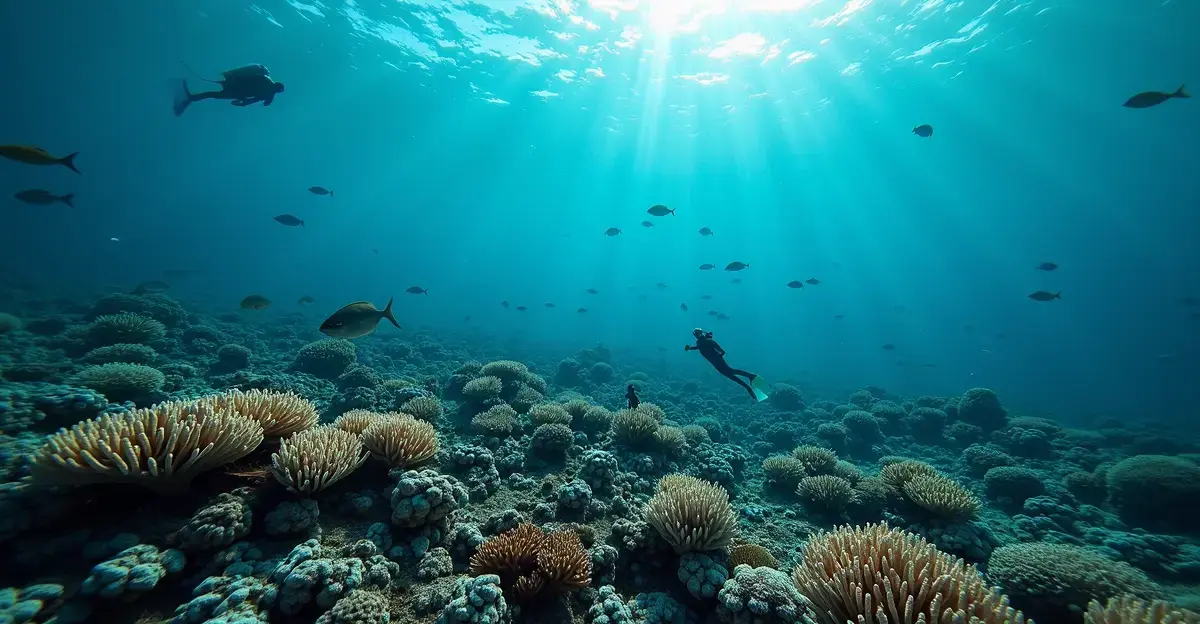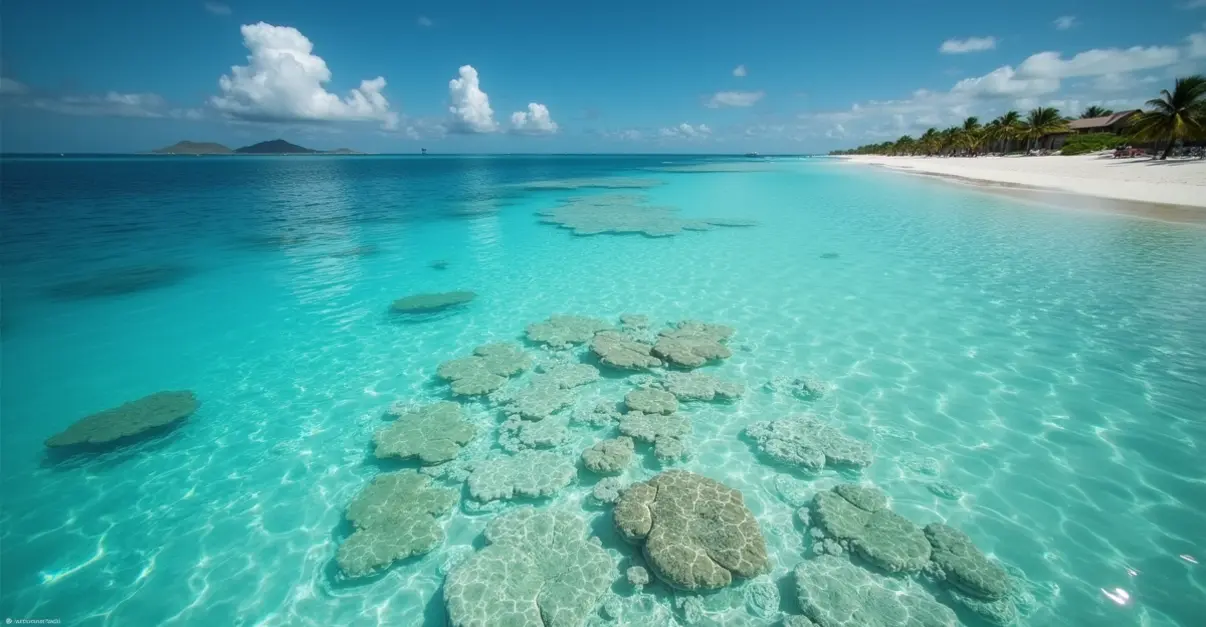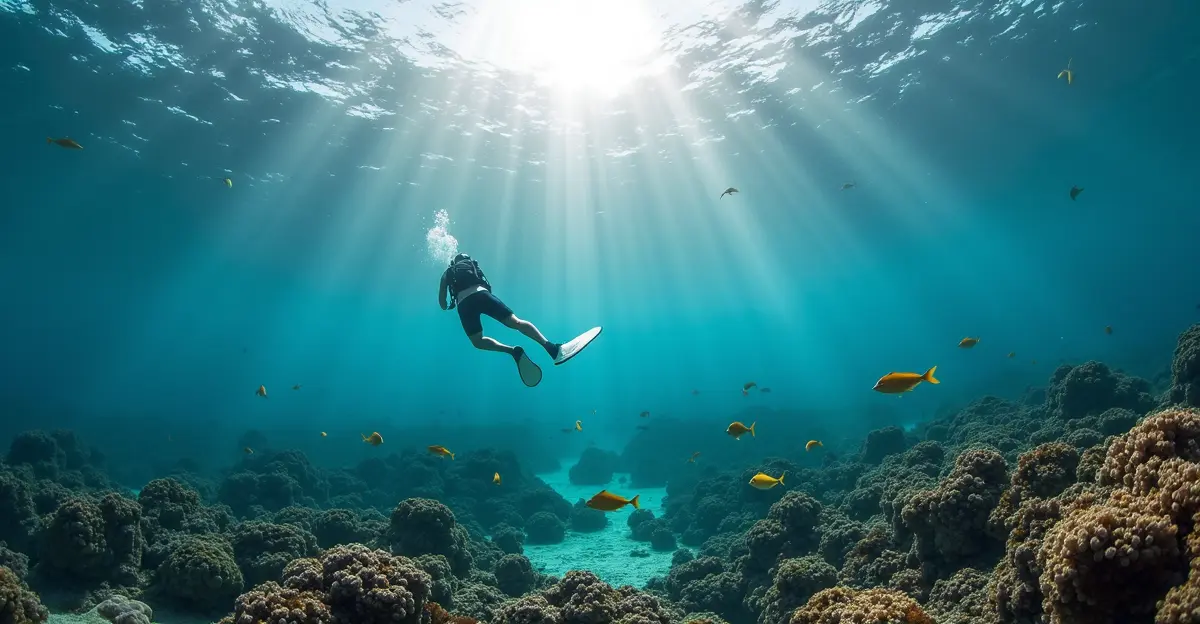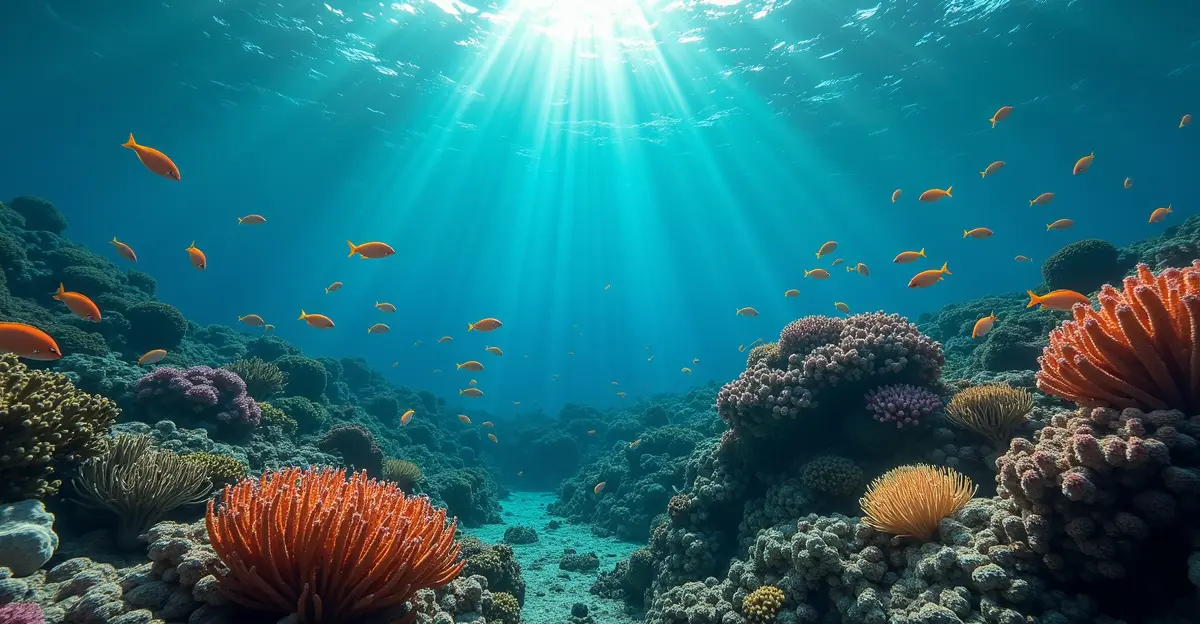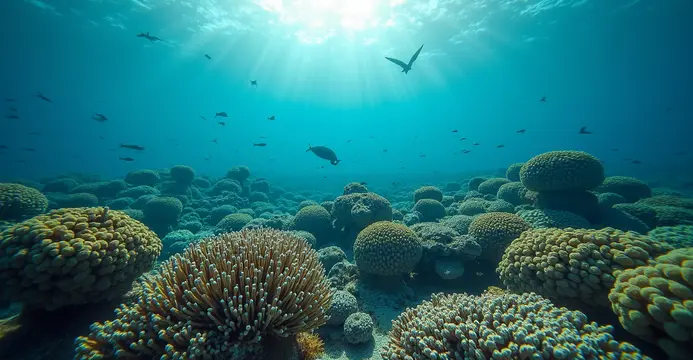Rising Sea Temperatures Endanger Coral Reefs
Coral reefs, often referred to as the "rainforests of the sea," are facing unprecedented threats due to rising sea temperatures. These ecosystems, which occupy less than 0.1% of the ocean's area, are home to at least 25% of all marine species. However, recent studies indicate that shallow tropical coral reefs have declined by 50% since 1950, primarily due to their sensitivity to changing water conditions.
The Impact of Climate Change
Global warming has led to increased ocean temperatures, causing widespread coral bleaching. When water temperatures rise just 1°C above seasonal maxima, corals expel their symbiotic algae, leading to bleaching. Prolonged exposure to such conditions can result in coral mortality. The Great Barrier Reef, for instance, has suffered extensive bleaching, with projections suggesting that 70-90% of coral loss could occur if global temperatures rise by 1.5°C.
Multiple Stressors
Beyond temperature rise, coral reefs are threatened by ocean acidification, overfishing, and pollution. Excess nutrients from agricultural runoff and coastal development exacerbate these issues, further weakening coral resilience. The combined effects of these stressors often exceed their individual impacts, accelerating reef degradation.
Urgent Calls for Action
Scientists and environmentalists are urging immediate global action to protect coral reefs. Measures include reducing greenhouse gas emissions, establishing marine protected areas, and implementing sustainable fishing practices. The annual economic value of coral reefs is estimated at up to $375 billion, underscoring the need for conservation efforts.
For more information, visit The Washington Post.

 Nederlands
Nederlands
 English
English
 Deutsch
Deutsch
 Français
Français
 Español
Español
 Português
Português
